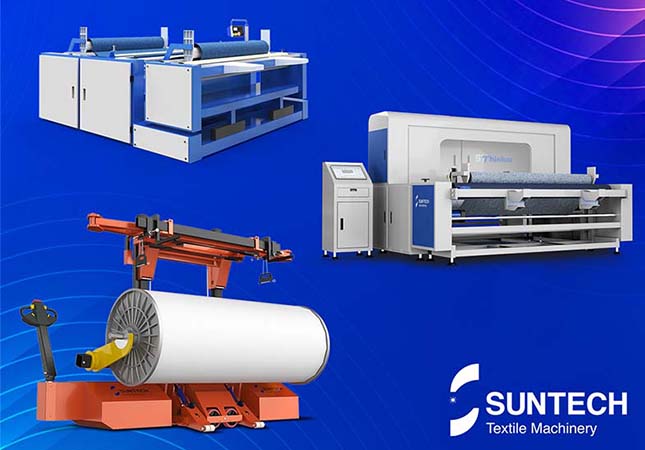The Future Of Textile Machinery: Trends And Predictions
The textile machinery industry is poised for a transformative future, driven by advancements in technology and a growing emphasis on sustainability. In this blog, we will explore the landscape of the textile machinery industry and discuss emerging trends and technologies that are likely to shape its trajectory in the coming years. From smart textiles to 3D printing, nanotechnology, and sustainable manufacturing, we will provide insights into how these developments will impact production processes, product offerings, and market dynamics. Let's dive into the exciting future of textile machinery!
Where Technology Meets Fabrics
Smart textiles, also known as e-textiles or electronic textiles, are fabrics embedded with electronics, sensors, and connectivity. These textiles can monitor and respond to environmental conditions, gather data, and enhance functionality. The integration of textile machinery with smart textiles opens up a plethora of possibilities. Imagine garments that can regulate body temperature, monitor vital signs, or change color based on mood. These advancements will not only revolutionize the fashion industry but also find applications in healthcare, sports, and automotive sectors.
3D Printing Redefining Manufacturing Processes
The advent of 3D printing has had a profound impact on various industries, and textile manufacturing is no exception. With 3D printing, complex textile structures and patterns can be created with precision and efficiency. This technology enables customization, rapid prototyping, and reduced waste. It also allows for the integration of functional elements within fabrics, such as embedded sensors or conductive pathways. The adoption of 3D printing in textile machinery will lead to faster production cycles, increased design flexibility, and a shift towards on-demand manufacturing.
Nanotechnology Enhancing Performance and Functionality
Nanotechnology involves manipulating matter at the nanoscale level, bringing new possibilities to the textile industry. By incorporating nanoparticles into fabrics, textile machinery can enhance various properties such as strength, durability, stain resistance, and moisture management. Nanocoatings can provide fabrics with self-cleaning capabilities or protection against UV radiation. Additionally, nanofibers can be utilized to create high-performance textiles with improved breathability and comfort. The integration of nanotechnology into textile machinery will open doors to advanced functional textiles for diverse applications.

Sustainable Manufacturing
As the world becomes more environmentally conscious, sustainable manufacturing practices are gaining prominence in the textile industry. Textile machinery is at the forefront of this shift, enabling the production of eco-friendly fabrics and reducing the industry's ecological footprint. Innovative technologies, such as waterless dyeing processes, digital printing, and recycling systems, are emerging to minimize resource consumption, chemical usage, and waste generation. The future of textile machinery lies in sustainable manufacturing, promoting circular economy principles and aligning with consumer demands for environmentally responsible products.
Expert Predictions and Industry Forecasts
Experts foresee a promising future for the textile machinery industry, driven by the aforementioned trends and technologies. Market research suggests that the global smart textiles market is expected to reach substantial growth in the coming years. The 3D printing market is projected to revolutionize textile manufacturing, with estimates indicating increased adoption across various sectors. Nanotechnology in textiles is predicted to witness rapid advancements, leading to the development of innovative fabrics with advanced functionalities. Sustainable manufacturing practices are also expected to become the norm, as regulations tighten and consumer preferences shift towards eco-friendly products.
Conclusion
The future of textile machinery is filled with exciting possibilities. Smart textiles, 3D printing, nanotechnology, and sustainable manufacturing are reshaping the industry and driving innovation. As these trends continue to evolve, textile machinery will become more advanced, efficient, and environmentally friendly. Manufacturers, designers, and consumers can look forward to a future where textiles are not just fabrics but intelligent, sustainable, and functional solutions. Embracing these transformative technologies will shape the textile industry, making it more dynamic, responsive, and attuned to the needs of the modern world.
SUNTECH Textile Machinery has the range of products encompasses almost all fabric types, including but not limited to pinking machine, loom machine, weaving machine, beam truck, fabric cutting machine, motorized beam trolley, beam storage, and fabric inspection machine. SUNTECH Textile Machinery continues to lead the textile industry with its innovative approach and extensive experience. We welcomes quotes and cooperation opportunities with open arms.
Comments
Post a Comment